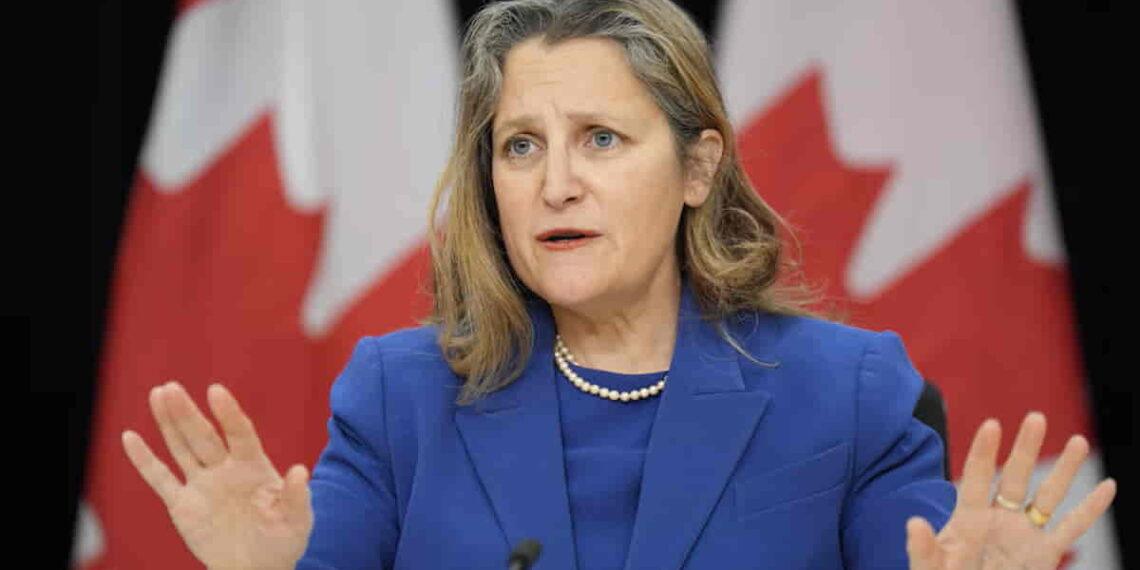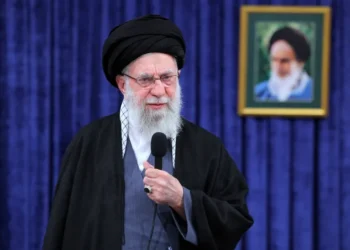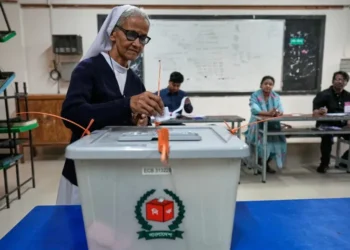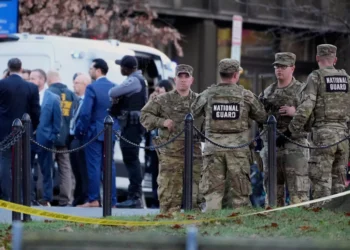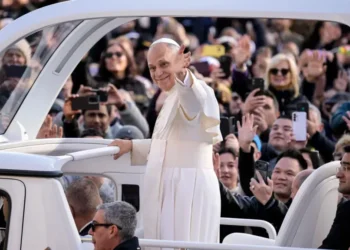Chrystia Freeland Announces Run for Prime Minister Following Trudeau’s Resignation
Chrystia Freeland, former Canadian finance minister, has officially launched her bid to replace Justin Trudeau as the leader of the Liberal Party and the next prime minister of Canada. Freeland, who resigned from her position in December, made the announcement on Friday through a statement posted on social media. She will kick off her campaign on Sunday.
In a recent opinion piece for the Toronto Star, Freeland also laid out her position on trade with the United States, calling for retaliatory measures if President-elect Donald Trump follows through with threats to impose tariffs on all Canadian goods. Freeland warned that Canada would respond with “a dollar-for-dollar” counterpunch, targeting specific industries in key U.S. states.
“If President Trump imposes 25 percent tariffs, our counterpunch must be precisely and painfully targeted,” Freeland wrote. She further highlighted that Canadian exports to the U.S. are greater than those from China, Japan, the U.K., and France combined, making it a significant trade blow for the U.S. economy.
A Shocking Resignation and Trudeau’s Exit
Freeland’s resignation from Trudeau’s cabinet on December 16 shocked the nation and raised questions about the future of the Prime Minister’s leadership. Freeland criticized Trudeau’s economic priorities, particularly in response to Trump’s tariff threats, and indicated a growing rift within the Liberal Party.
On January 6, Trudeau announced he would step down as Prime Minister, although he will remain in office until a new leader is selected. The Liberal Party will choose its new leader on March 9, and a federal election is anticipated in the spring.
Political Challenges Ahead for the Liberals
Freeland, along with former Bank of England Governor Mark Carney, is one of the front-runners for the Liberal leadership. However, the timing of the leadership contest is challenging, as all three opposition parties have pledged to bring down the Liberal minority government in a no-confidence vote scheduled for March 24.
Recent polls paint a bleak picture for the Liberals’ chances in the upcoming election, with the opposition Conservatives leading the Liberals by a 47% to 20% margin, according to a Nanos Research poll.
Freeland’s Resignation and Tensions with Trudeau
Freeland’s resignation came after Trudeau’s decision to strip her of the finance minister role, though he offered her a position as deputy prime minister in charge of U.S.-Canada relations. Freeland’s departure followed a sharp letter critical of the Trudeau government, marking the end of their once-close political partnership.
“Chrystia has been by my side for close to 10 years now,” Trudeau said in his resignation statement, praising her as an exceptional political partner. A source close to Freeland indicated that the resignation was a direct response to Trudeau’s lack of confidence in her.
Former U.S. President Donald Trump, who had worked closely with Freeland during the renegotiation of the NAFTA trade agreement, called her “totally toxic” and “not conducive to making deals” after her resignation.
Freeland’s Economic Criticisms and Vision for Canada
Freeland had previously voiced concerns about two of Trudeau’s policies, including a temporary sales tax holiday and checks for citizens. She argued that these initiatives were “costly political gimmicks” and not sustainable for Canada’s economy. Freeland had warned that Canada needed to focus on maintaining fiscal stability, especially with growing concerns about a potential trade war.
While her time as finance minister has been marked by rising deficits, Freeland’s supporters argue that she was focused on navigating challenging global economic conditions. Freeland also became a frequent critic of Trump, especially in her role as a staunch advocate for Ukraine during the ongoing Russia-Ukraine war.
A Global Perspective
Known for her sharp political mind and international connections, Freeland is no stranger to the global stage. The 56-year-old is a Harvard graduate and Rhodes Scholar who speaks five languages. She has worked as a journalist for high-profile publications such as The Globe and Mail and the Financial Times. Her experience, combined with her personal connections and influence, has made her a prominent figure both in Canada and internationally.
A Complex Relationship with Trump and Russia
Freeland’s opposition to Russia, particularly her criticism of President Vladimir Putin, has also shaped her political career. In 2014, Putin banned Freeland from entering Russia in retaliation for Western sanctions against Moscow. Freeland’s staunch support for Ukraine and her ability to handle international tensions were key components of her leadership.
As Canada’s point person on trade with the U.S. during Trump’s administration, Freeland navigated some of the most complex diplomatic negotiations in recent history, including the renegotiation of the NAFTA agreement.
Looking Forward
With the leadership race heating up and the upcoming election on the horizon, Chrystia Freeland’s political future remains uncertain. However, her decision to run for prime minister signals a new chapter in Canada’s political landscape, and much will be at stake for both the Liberal Party and the country as a whole.
This article was rewritten by JournosNews.com based on verified reporting from trusted sources. The content has been independently reviewed, fact-checked, and edited for accuracy, neutrality, tone, and global readability in accordance with Google News and AdSense standards.
All opinions, quotes, or statements from contributors, experts, or sourced organizations do not necessarily reflect the views of JournosNews.com. JournosNews.com maintains full editorial independence from any external funders, sponsors, or organizations.
Stay informed with JournosNews.com — your trusted source for verified global reporting and in-depth analysis. Follow us on Google News, BlueSky, and X for real-time updates.
